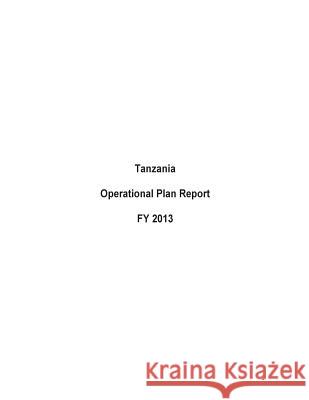Tanzania Operational Plan Report FY 2013 » książka
Tanzania Operational Plan Report FY 2013
ISBN-13: 9781503194168 / Angielski / Miękka / 2014 / 546 str.
Since 2004, PEPFAR Tanzania has been working closely with the United Republic of Tanzania and other donors, including the Global Fund to Fight AIDS, Tuberculosis and Malaria, to respond to the HIV epidemic. PEPFAR/T, the GFATM and the URT share a symbiotic relationship in Tanzania. While PEPFAR/T predominantly focuses on services and system strengthening, GFATM is responsible for commodity procurement and some systems strengthening, and the URT provides policy framework, infrastructure, systems, and personnel. Deficits in resources, governance, and health systems continue to complicate Tanzania's ability to adequately respond to HIV/AIDS. As a result, Tanzania's health programs, especially for HIV, are highly dependent upon donor funding. Foreign funds account for 97% of the Mainland's HIV/AIDS response, of which 90% come from the combined efforts of PEPFAR/T (74%) and the GFATM (16%). In addition, the country grapples with weak health infrastructure, shortages of health and social workers, high levels of stigma, cumbersome government procurement systems, weak management and strategic planning, and poor accountability. According to the 2011 UNAIDS Report on the Global AIDS Epidemic, adult HIV prevalence in the country is estimated at 5.8% and an estimated 1.6 million Tanzanians are living with HIV of which 1.3 million are OVC. An estimated 84,000 AIDS related deaths occur in Tanzanian each year. According to the 2007-08 Tanzania HIV and AIDS and Malaria Indicator Survey, the impact of the epidemic varies significantly by region, with the highest prevalence region (Iringa) estimated at 15.7%, and the lowest estimated (Zanzibar) at 0.6%, and with a significant difference in the prevalence between urban (9%) and rural (5%) areas. The data also reveal significant sex differentials in HIV prevalence, with male prevalence at 5%, and female prevalence at 7%. A new THMIS was conducted in 2011-2012 and is due to be released in late March 2013. Despite a generalized epidemic, key populations play a critical role in HIV transmission dynamics. Data indicate that injection drug use, specifically heroin use, is on the rise in urban Tanzania and Zanzibar. Studies carried out in Dar es Salaam indicate that the HIV prevalence is 42% among people who inject drugs (2007) and 31.4% among sex workers (2010), while unpublished data for men who have sex with men in Dar es Salaam indicates prevalence over 30% (2012). PEPFAR support to Tanzania has enabled a dramatic increase in the number of adults and children accessing ART, with 364,000 individuals receiving treatment in FY2012. Also during FY2012, a total of 3,370,000 individuals received HIV testing and counseling, 1,100,000 pregnant women were tested and counseled through PMTCT services, 526,000 OVC received support, and 152,000 VMMC took place.
Zawartość książki może nie spełniać oczekiwań – reklamacje nie obejmują treści, która mogła nie być redakcyjnie ani merytorycznie opracowana.











